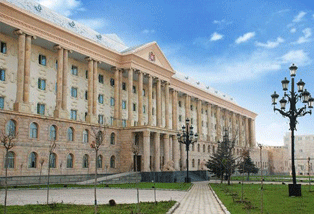Sopo Getsadze
Amendments were introduced to Article 78 of the Civil Procedural Code of Georgia. According to the amendments, if a location of any party is not known or a court summon cannot be delivered, the court is authorized to make a decision to publicly notify the party about the court hearing.
The MPs from the legal committee of the Parliament of Georgia are introducing amendments to the code because of the increased number of attempts to avoid court hearings.
“The court improves the shortcomings in the law and enhances the ability to communicate to the party regarding their procedures. Up until now, the court could publish information only via media sources. Now, they can also place the announcement on the board in the court building and as well as publish it on its website,” said the MP from the legal committee Teimuraz Tsurtsumia.
Some lawyers think differently about this innovation. They think the amendments will further violate the rights of the defendant. Lawyer Zurab Eremashvili told the Human Rights Center that according to the amendments, if a person does not appear at the court, the judge will have the authority to pass a verdict against him/her and within seven days, it will be valid. It is natural that this process will have a reversed result.
“My client was in Greece and a suit was filed against him in 2008; the court did not pass the verdict in his absence. Since he was in Greece, the court could not send a summons to his place. They published the information about the scheduled trial once in the newspaper which is only distributed in Georgia. Consequently, the court imposed payment of $32, 000 USD on my client,” said the lawyer.
Human Rights Center lawyer Nino Andriashvili also negatively assessed the amendments to the code. She said the court is entitled to apply to the territorial entity according to the residential area of the person.
“For example, if a person lives in Kutaisi, the court could apply to the city hall district administration for help to find the location of the person; this is required by law. Now however, the judiciary system has chosen the easiest ways for its procedures,” said Andriashvili.
The lawyers state that the selection of the easiest procedure contradicts the essential principle of the law – the right to an adversarial trial. The parties enjoy equal rights and the opportunity to substantiate their requirements, as well as decline or neutralize the allegations of the opposite party.




